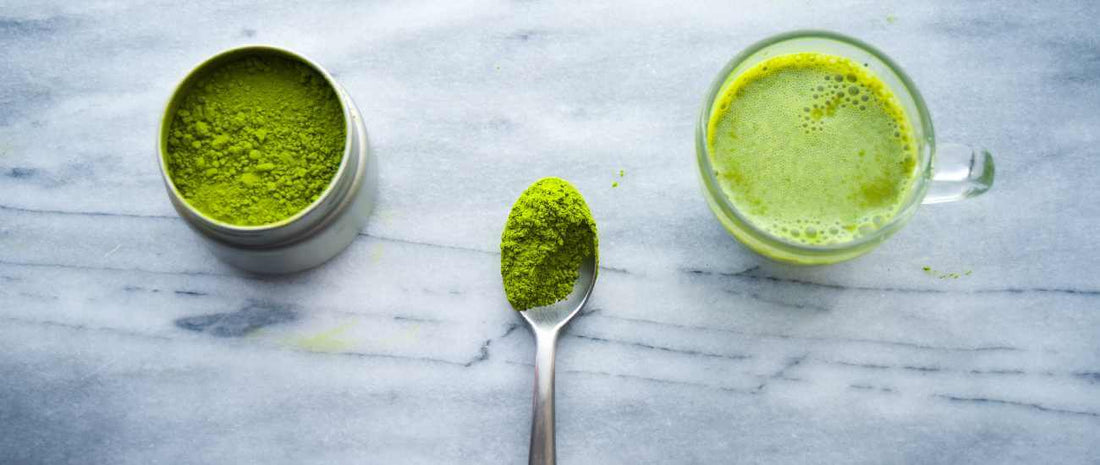
Does Matcha Make You Poop?
Share
If you're an avid tea enthusiast or just someone looking to explore different beverages, you might have stumbled upon the intriguing question: Does Matcha make you poop? It's a question that has gained attention in health circles and among matcha enthusiasts.
Table of content
What is Matcha?
To start our exploration, let's understand what Matcha is. Japanese ceremonial tea has been infused with Matcha for centuries. It is a powdered green tea. Using shade-grown tea leaves, the powder is made from stone-ground tea leaves. In contrast to traditional matcha green tea, Matcha is consumed whole and powdered rather than steeped and discarded. This unique preparation method contributes to Matcha's distinct flavor and vibrant green color.
Is Matcha The Same Thing As Tea?
Before delving into the specifics of its impact on digestion, let's clarify that Matcha is, indeed, a type of green tea. However, what sets it apart is the cultivation and processing methods. The shade-grown leaves, rich in chlorophyll, enhance the tea's flavor profile and contribute to its potential health benefits.
What are The Health Benefits of Drinking Matcha?
Matcha is more popular than ever because of its unique taste and health benefits. In addition to its antioxidant properties, Matcha is thought to have cancer-fighting properties due to its high concentration of catechins, especially epigallocatechin gallate (EGCG). L-theanine, an amino acid that promotes relaxation and alertness, is also present in this product.
Caffeine and L-theanine in Matcha provide sustained energy without making you feel jittery like coffee normally does. This makes Matcha an appealing choice for those seeking a mindful and focused energy lift.
Related Article: How to Drink Matcha
Does Matcha Make You Poop?
Now, let's address the burning question: Does Matcha make you poop? According to some anecdotal evidence and limited scientific studies, Matcha can indeed make you poop. The reasons behind this phenomenon are not entirely clear, but there are a few factors that could contribute to it.
Firstly, the caffeine content in Matcha may stimulate bowel movements. Caffeine is a natural stimulant that can activate the digestive system and, for some individuals, result in increased bowel activity. If you're sensitive to caffeine, you might find that consuming matcha powder organic leads to a more noticeable effect on your digestive system.
Secondly, the unique combination of catechins and L-theanine in Matcha might play a role in promoting gut health. A healthy gut contributes to regular bowel movements, and Matcha's potential impact on gut flora could contribute to its laxative effects.
Matcha and Gut Health
Delving deeper into the connection between Matcha and gut health, there's growing interest in how the antioxidants in Matcha may influence the microbiome—the community of bacteria in your gut. In addition to improving digestion, a balanced and diverse gut microbiome has several health benefits.
While research on the specific effects of Matcha on gut health is still in its early stages, some studies suggest that the polyphenols in green tea, including Matcha, may have a positive impact on gut bacteria. Therefore, regular bowel movements and better digestion are likely to follow. Visit Leigh Leaf to learn more about Matcha.
What are the Chances of Experiencing Bowel Movement Symptoms?
If you're considering incorporating Matcha into your daily routine and wondering about the chances of experiencing bowel movement symptoms, it's crucial to approach it with mindfulness. Depending on factors such as caffeine sensitivity, overall health, and diet, individual responses to Matcha can vary.
Matcha may affect some individuals' bowel movements more immediately, while others may not notice any difference. If you are new to Matcha, you should start off with a moderate amount and see how your body responds. You should consult a healthcare professional before making Matcha a regular part of your diet if you have pre-existing digestive issues or sensitivities.
Matcha Consumption Tips: For those intrigued by Matcha and its potential benefits but concerned about its impact on digestion, here are some tips:
Start Slow: If you're new to Matcha, start with a small amount to gauge your body's response. As you become accustomed to it, gradually increase the quantity.
Consider Your Sensitivity to Caffeine: Consider your overall caffeine intake from a variety of sources if you're sensitive to caffeine. Matcha contains caffeine, and excessive consumption may lead to digestive discomfort.
Quality Matters: Ensure you're getting the full range of flavor and health benefits by choosing ceremonial matcha tea. Lower-grade Matcha may lack the richness and nutritional profile of premium varieties.
Balance with Hydration: Matcha, like any caffeinated beverage, can contribute to dehydration. Ensure you stay adequately hydrated by drinking enough water throughout the day.
Listen to Your Body: Pay attention to how your body responds to Matcha. Your consumption should be adjusted if you experience any adverse reactions.
Conclusion
In the quest to unravel the mystery of whether Matcha makes you poop, it's clear that individual experiences can vary. There may be a laxative effect for some individuals, but for others, there are no significant changes in their bowel movements. The potential impact of Matcha on gut health adds another layer to its allure, prompting further exploration in the realm of nutritional science.
As with any dietary choice, moderation is key. Whether you're drawn to Matcha for its unique flavor, potential health benefits, or its impact on digestion, being mindful of your body's signals and adjusting your consumption accordingly ensures a positive and enjoyable experience with this vibrant green tea.
In the end, the question of whether Matcha makes you poop may remain somewhat elusive. Still, the journey of discovery and the potential health benefits make Matcha a fascinating addition to your tea repertoire. So, brew a cup, savor the moment, and let the green mystery unfold in your own unique way.
Related Articles:



